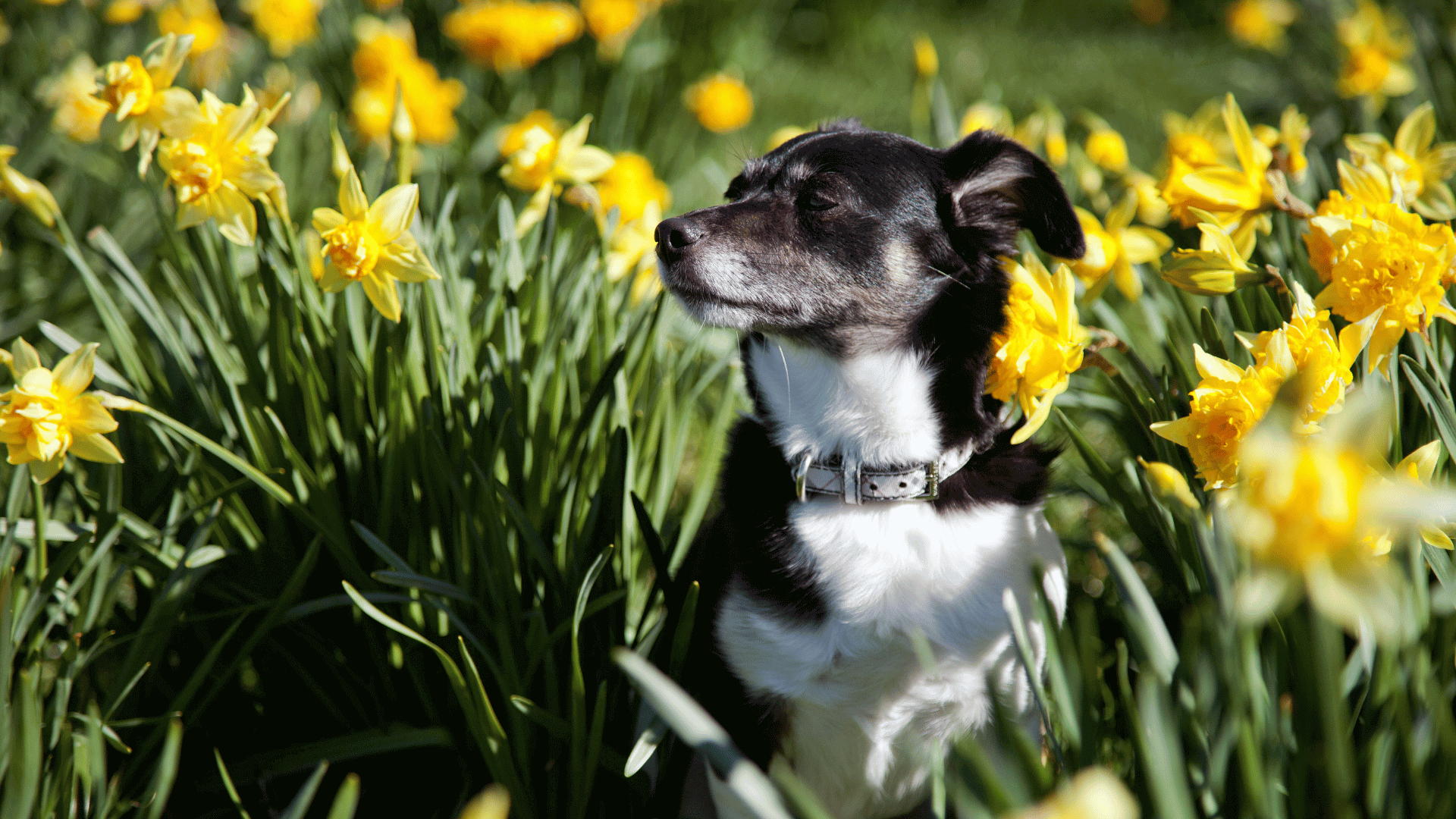
Coat change, pollen & Co.: How to prepare your dog for spring
Spring is finally here! The days are getting longer, the sun is warming and nature is coming to life again. What could be better than enjoying this season with your beloved four-legged friend?
Springtime is coat change time !
With the warmer temperatures and longer days, our four-legged friends shed their winter coats and grow a lighter summer coat. This natural process can be challenging for dogs and owners. The coat change usually takes 6-8 weeks. However, for some dogs it can be shorter or longer.
Valuable tips for the coat change period:
- Brush your dog regularly to remove loose fur and prevent matting.
- Make sure your dog has a healthy diet that provides him with all the important nutrients. Food supplements with omega-3 fatty acids are especially important during this time!
- Use a mild dog shampoo.
Goodbye, winter fat!
Winter fat is not only an issue for humans, but also for some dogs, because a lot of weight accumulates over the winter months. The extra weight puts strain on the joints, the cardiovascular system and increases your dog's risk of diabetes. Spring is the best time of year to get moving again.
Pollen
Allergic reactions can occur especially during spring when pollen is in the air. For this reason, it is advisable to clean your dog's paws with water after walking and occasionally give them a complete wash.
Spring flowers
In spring, flowers are in full bloom. Although the diverse, colorful flowers are a real feast for the eyes, they also pose a potential danger for your dog. While daisies and violets are harmless, caution is advised with certain other types of flowers such as tulips, lilies of the valley, crocuses, hyacinths and primroses. If your dog eats these flowers, it can lead to poisoning, vomiting and diarrhea. If poisoning occurs, see a vet immediately .
Breeding season
If you take your dog to a lake, it is important that he does not chase ducklings. There are often signs at lakes and in parks that indicate the breeding seasons of certain bird species. In addition to general responsibilities, every dog owner has an increased duty of supervision from April to July during the breeding and nesting season. During this period, many wild birds and mammals breed and give birth to their young in the spring.
Ticks
Spring not only brings pleasant temperatures, but also the unwanted side effect of tick season. It is particularly important for long-haired or dark-colored dogs to be checked regularly for ticks and to remove them immediately. If you want to use a natural method of prevention, you can put an amber necklace around your dog's neck and/or add coconut oil to their food or to their fur.
Share

